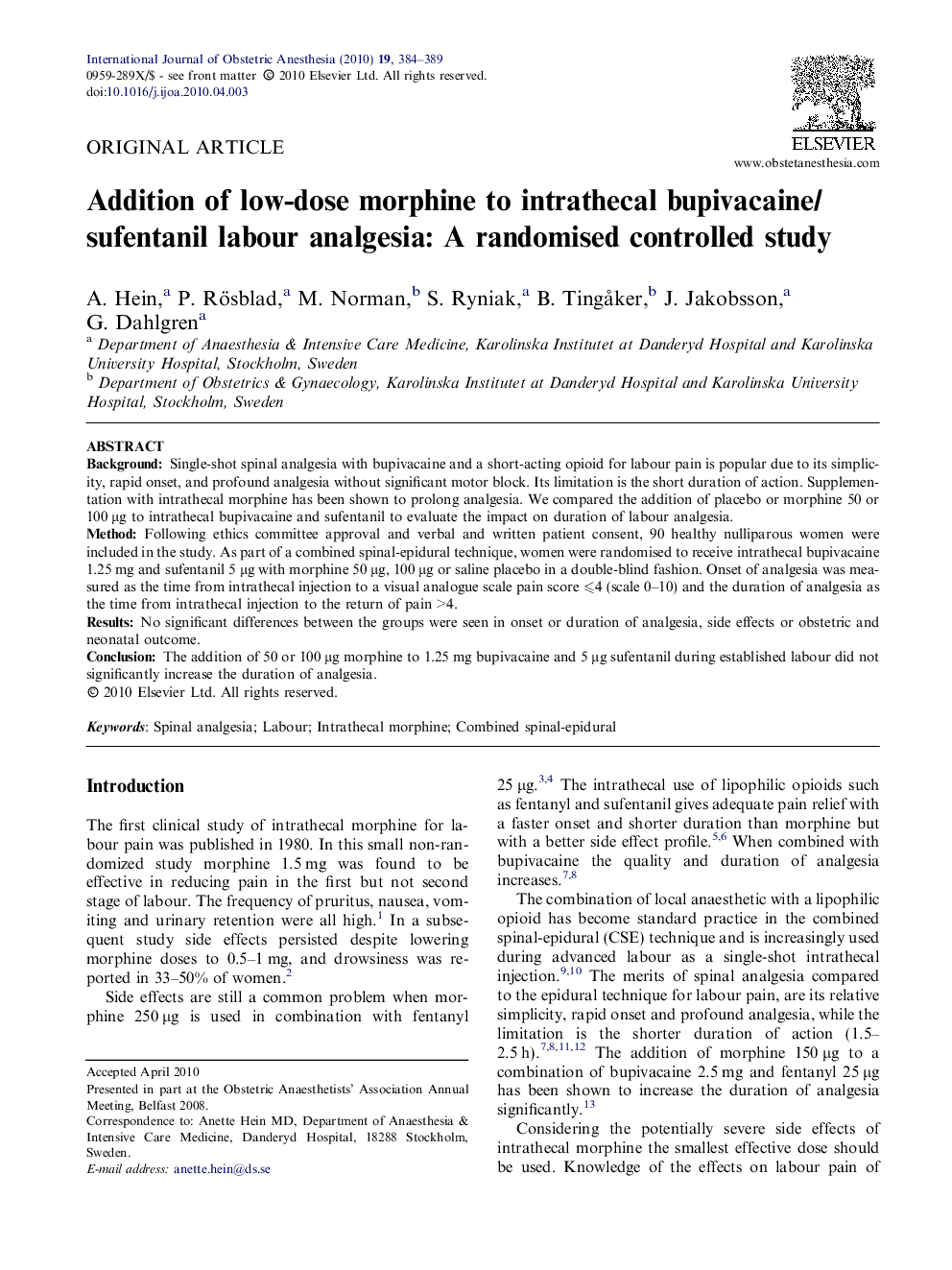| Article ID | Journal | Published Year | Pages | File Type |
|---|---|---|---|---|
| 2758240 | International Journal of Obstetric Anesthesia | 2010 | 6 Pages |
BackgroundSingle-shot spinal analgesia with bupivacaine and a short-acting opioid for labour pain is popular due to its simplicity, rapid onset, and profound analgesia without significant motor block. Its limitation is the short duration of action. Supplementation with intrathecal morphine has been shown to prolong analgesia. We compared the addition of placebo or morphine 50 or 100 μg to intrathecal bupivacaine and sufentanil to evaluate the impact on duration of labour analgesia.MethodFollowing ethics committee approval and verbal and written patient consent, 90 healthy nulliparous women were included in the study. As part of a combined spinal-epidural technique, women were randomised to receive intrathecal bupivacaine 1.25 mg and sufentanil 5 μg with morphine 50 μg, 100 μg or saline placebo in a double-blind fashion. Onset of analgesia was measured as the time from intrathecal injection to a visual analogue scale pain score ⩽4 (scale 0–10) and the duration of analgesia as the time from intrathecal injection to the return of pain >4.ResultsNo significant differences between the groups were seen in onset or duration of analgesia, side effects or obstetric and neonatal outcome.ConclusionThe addition of 50 or 100 μg morphine to 1.25 mg bupivacaine and 5 μg sufentanil during established labour did not significantly increase the duration of analgesia.
